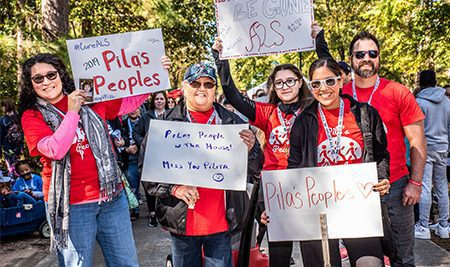According to the ALS Association, “ALS, or amyotrophic lateral sclerosis, is a progressive neurodegenerative disease that affects nerve cells in the brain and spinal cord. ALS, commonly known as Lou Gehrig’s Disease, attacks cells in the brain and spinal cord that carry messages from your brain to your muscles.” In other words, a life-altering disease that affects the way a person can move and live in day-to-day life. ALS tears down receptors in the body, meaning the brain can no longer control and use these parts. If your spine is unusable, functions like eating, breathing, and speaking will also deteriorate. ALS is not typically found in anyone younger than the age of forty.
Someone you may know with ALS is the late Stephen Hawking. You might remember him being confined to a wheelchair and unable to speak without a machine. Believed to have the same IQ as Albert Einstein, he was noted as one of the greatest minds of our time, despite his disease. Not every ALS patient has the luxury of life, though. The ALS Association notes that “Half of all people with ALS live at least three years after they are diagnosed. Twenty percent of patients live five years or more, and up to 10% will live more than ten years.” It is obvious the outlook on life for these people is not the best.
One nonprofit aims to change that. The ALS Association Texas Chapter is a foundation in Texas dedicated to the study of ALS and ways to deter it from taking over someone’s life. In their efforts, they “served 1,272 Texans with ALS, made 414 home visits to ALS patients and family members, helped 1,633 individuals through our 160 virtual workshops, presentations, and support group meetings, supported eleven multi-disciplinary clinics in Texas, cared for 653 patients in our Clinics & ALS Association Treatment Centers, funded 18 clinical research trials in Texas, completed 2,313 patient interactions, and loaned $1.4M worth of durable medical equipment to Texans with ALS” in 2020 alone.
Their website also shows a short video clip of all the things a donation can do for them. For example, twenty-five dollars can buy one patient with ALS a voice box when they lose their speaking ability. The goals of the ALS Association Texas Chapter include advocacy, education, treatment, family services, programs, funding hospitals, and more. The foundation operates over the entirety of Texas and supports many hospitals across the state. Their website also includes a list of resources for patients who have been recently diagnosed with ALS or family members of patients including things such as hospitals, hospice, support groups, news, and things such as.

